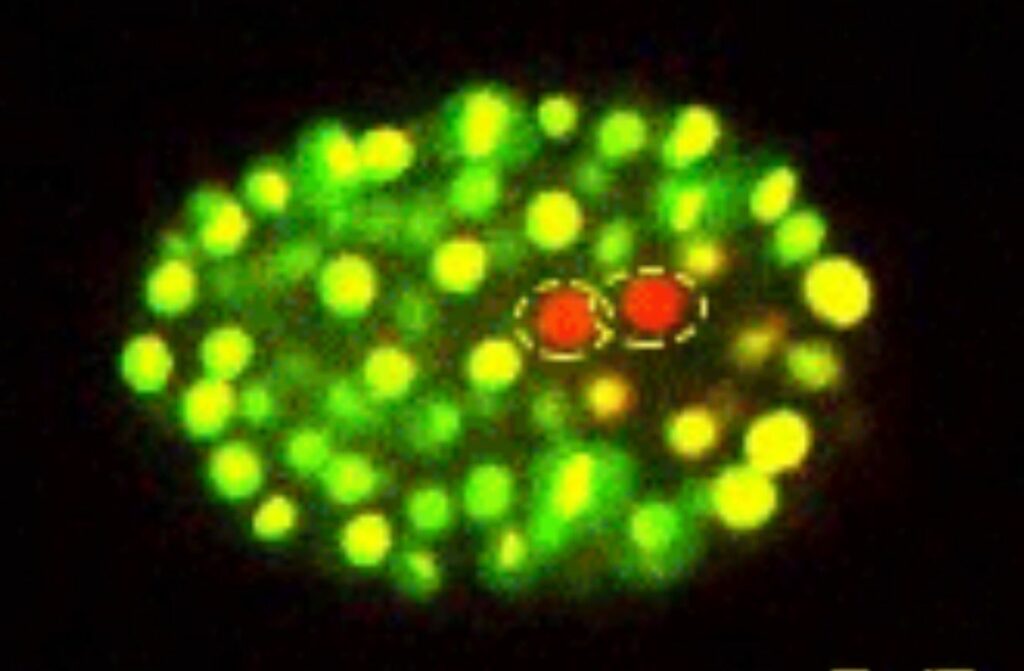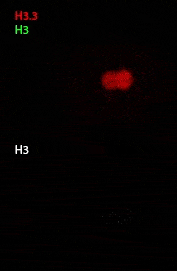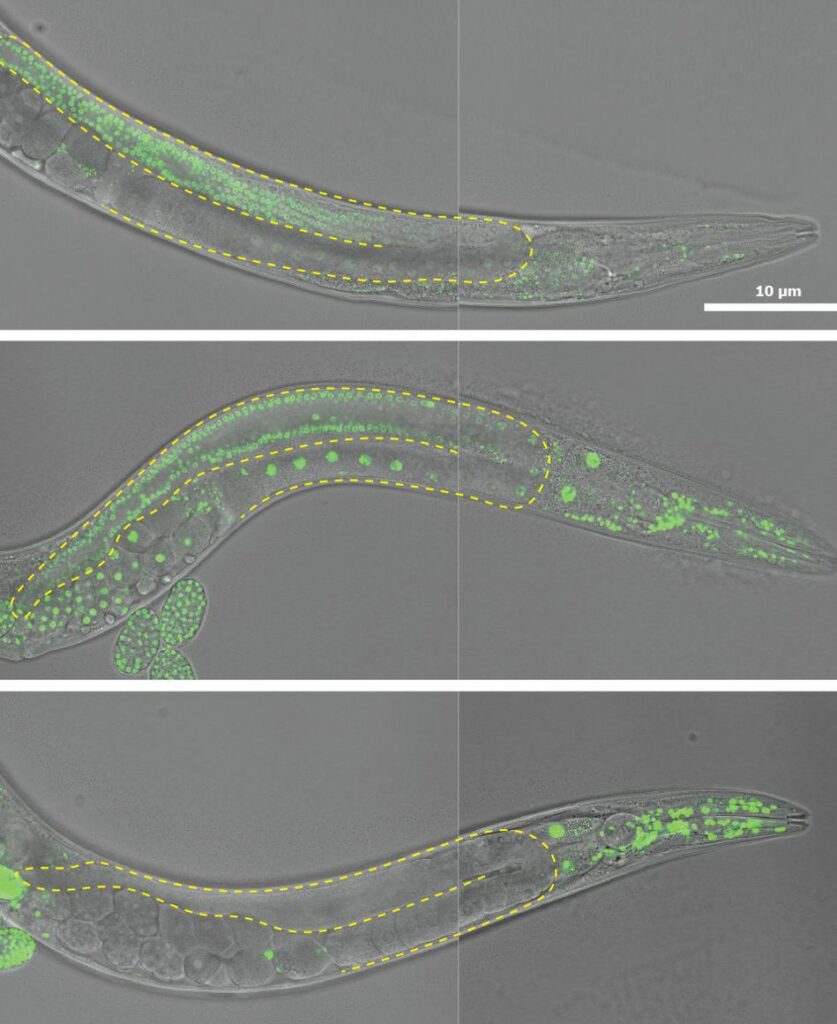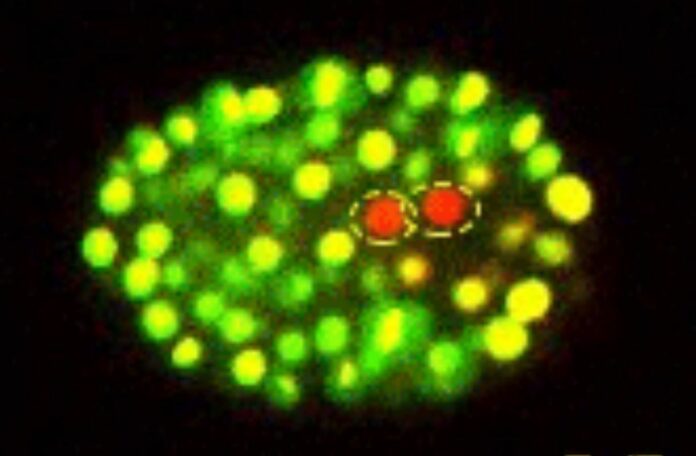In a groundbreaking finding that challenges classical thinking, researchers from Johns Hopkins University have identified specific proteins within the chromosomes of roundworms that enable their offspring to produce specialized cells generations later.
Scientists have made a remarkable discovery regarding roundworms, wherein they have identified particular proteins present in their chromosomes that facilitate their descendants to generate specialized cells even after several generations.
This revelation is a significant breakthrough and contradicts the traditional belief that hereditary information for cell differentiation is mainly embedded in DNA and other genetic factors.
In a groundbreaking study, the team from Johns Hopkins University has disclosed the mechanisms through which the protein histone H3 regulates the production of both specialized and pluripotent cells in worm embryos. Pluripotent cells have the ability to activate and deactivate certain genes to generate different types of body tissues.
The findings of this research have been published in Science Advances.
This latest research could provide insights into the impact of mutations related to these proteins on different diseases. Histone H3, for instance, is strongly linked to different types of cancers in children and young adults.

“These mutations are highly prevalent in different cancers, so understanding their normal role in regulating cell fate and potentially differentiation of tissues may help us understand why some of them are more prevalent in certain diseases,” explains lead author Ryan J. Gleason. “The histones that we’re looking at are some of the most mutated proteins in cancer and other diseases.”
Histones are fundamental components of chromatin, which provides structural support to chromosomes within the nucleus of a cell. Histone H3 is found in high abundance in multicellular organisms, including plants and animals, whereas unicellular organisms contain a nearly identical variant of H3. Scientists believe that the difference in the ratios of H3 and its variant may hold crucial clues to understand why pluripotent cells are so adaptable during early development.
According to the research, as C. elegans roundworm embryos develop, an increase in H3 levels restricts the plasticity of pluripotent cells. However, by reducing the amount of H3 in the worm’s genome, the research team was able to prolong the window of time for pluripotency that is usually lost in older embryos. This study may shed light on the role of histones in the development of various diseases.

“As cells differentiate, you start to get a hundredfold histone H3 being expressed at that time period, which coincides with that lineage-specific regulation,” Gleason adds. “When you lower the amount of H3 during embryogenesis, we were able to change the normal path of development to adopt alternative paths of cell fate.”
Histones play a crucial role in the differentiation of pluripotent cells by turning certain genes on and off to develop into specific cell types like neurons, muscles, or other tissues. The activity of genes, which is tightly regulated by histones, directs the cells to follow a particular developmental pathway. The level of gene expression determines the fate of a cell.
The latest insights are a result of the utilization of CRISPR, a gene-editing technique that enabled the research team to examine the function of the two histones during the development of the worm’s offspring. Over the last decade, CRISPR has simplified the study of modifying genetic material and identifying its effects on the characteristics of animals, plants, and microbes, as per Gleason.

While the C. elegans roundworm provides valuable insights into the evolution of pluripotent cells, more research is required to understand how histones contribute to embryonic development in humans and other animals, which consist of hundreds of different types of cells. Xin Chen, a co-investigator and biology professor at Johns Hopkins, emphasized the need for further investigation in this regard.
Xin Chen stated that while the team made these discoveries using a small worm, the implications of these findings should not be limited to a single organism. Chen believes that the findings are unlikely to be exclusive to one histone or animal, but more research is necessary to confirm this.
Image Credit: Ryan J. Gleason, Johns Hopkins University
